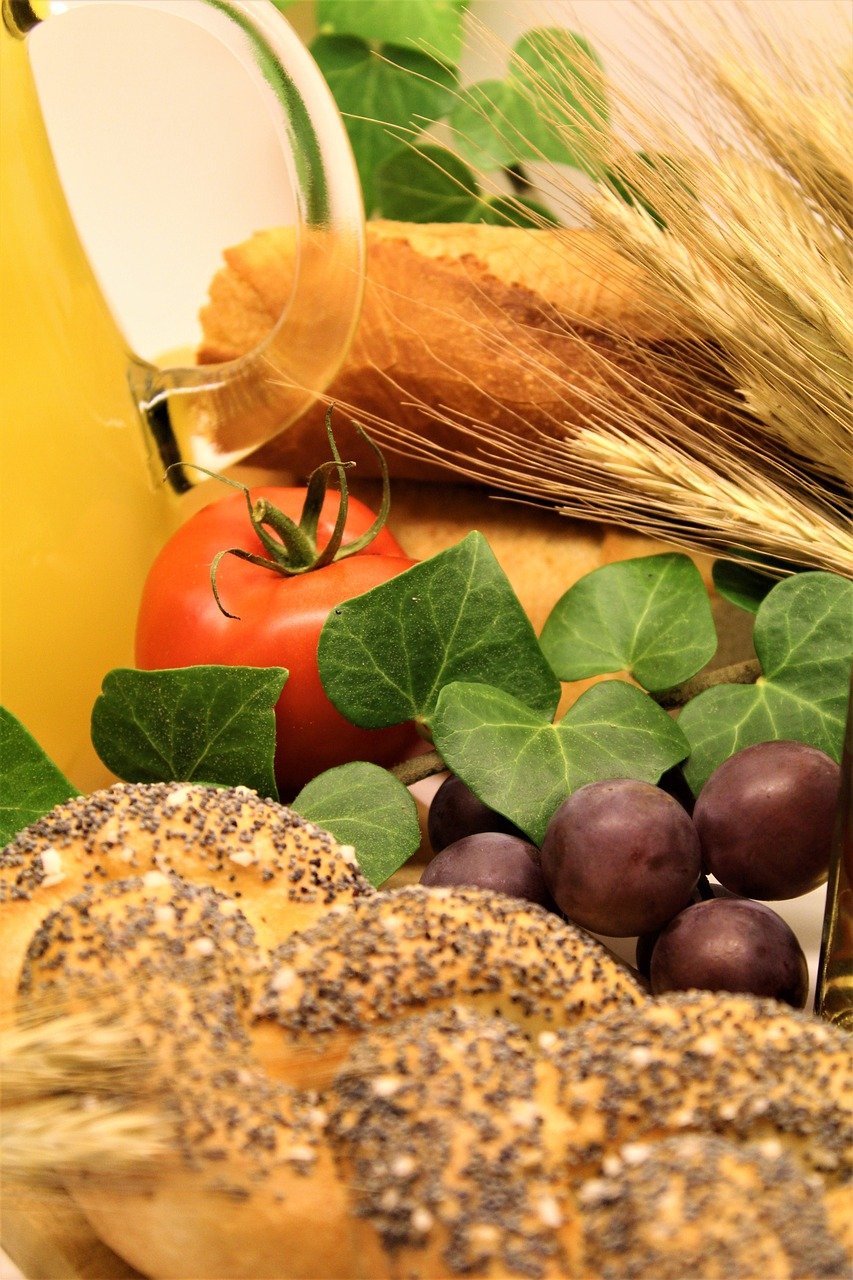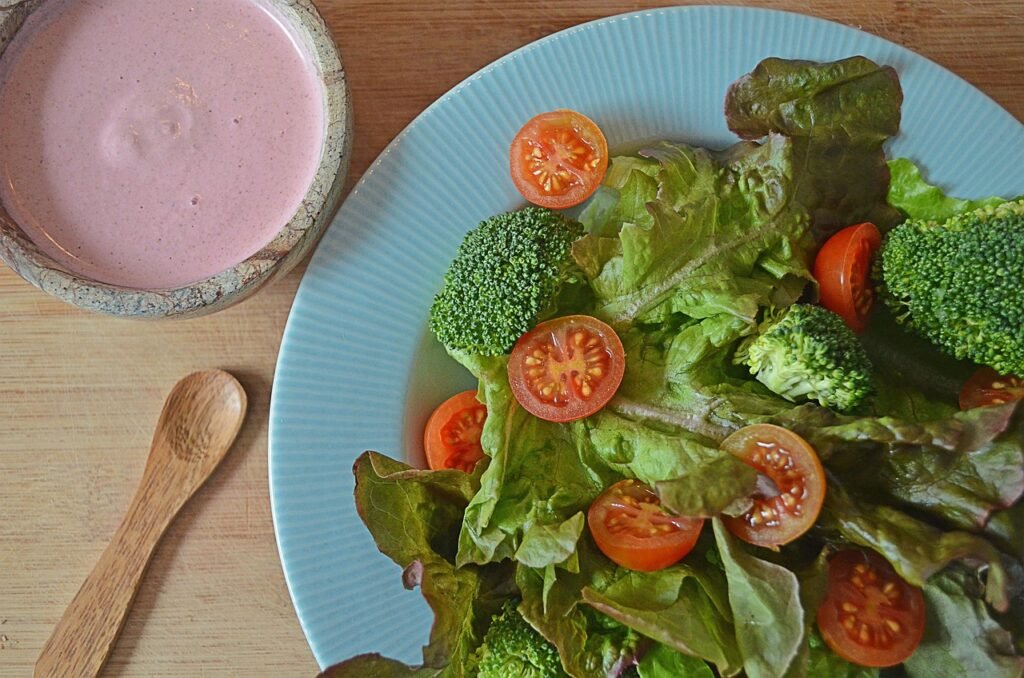Introduction:
The journey to holistic well-being starts with the right fuel for your body. By embracing a plant-based diet, you’re not only making choices that benefit the planet but also taking a significant step toward personal health. Nutrient-packed vegan foods for holistic health play an essential role in this transformation. In this blog, we’ll explore 10 of the most powerful plant-based foods that support your physical, mental, and emotional well-being. Whether you’re new to veganism or a seasoned advocate, these foods will help you thrive and live your healthiest life.

1. Spinach: A Green Powerhouse
Spinach is an incredibly nutrient-dense leafy green that provides a wide range of health benefits. It’s rich in iron, calcium, and vitamins A, C, and K, which are vital for maintaining healthy bones, supporting your immune system, and promoting skin health. Spinach is also a great source of plant-based iron, making it especially valuable for those on a vegan diet.
How to incorporate spinach:
- Add fresh spinach to your smoothies for a nutrient boost without altering the flavor.
- Use it as a base for salads or as a topping for grain bowls.
2. Chia Seeds: Tiny but Mighty
Chia seeds may be small, but they pack a serious nutritional punch. They are one of the richest plant-based sources of omega-3 fatty acids, which support brain health and help reduce inflammation. Chia seeds are also high in fiber, protein, and antioxidants, making them a great addition to any diet. Just two tablespoons provide nearly 5 grams of protein and 10 grams of fiber.
How to use chia seeds:
- Stir chia seeds into plant-based yogurt or smoothies.
- Make chia pudding by soaking the seeds in almond milk for a few hours until they form a gel-like consistency.
3. Lentils: Plant-Based Protein Superstar
Lentils are a fantastic source of plant-based protein and are loaded with essential nutrients like iron, magnesium, and potassium. They are also high in fiber, which helps regulate digestion and keeps you feeling fuller for longer. Lentils are incredibly versatile, and their hearty texture makes them an excellent meat substitute in many recipes.
Ways to enjoy lentils:
- Add cooked lentils to salads or grain bowls.
- Use them as the base for plant-based stews, soups, or curries.
4. Quinoa: The Complete Protein
Quinoa is one of the few plant-based foods that is a complete protein, meaning it contains all nine essential amino acids that your body needs for muscle repair and overall function. It’s also a great source of magnesium, which supports heart health and helps relax blood vessels, reducing the risk of hypertension.
How to incorporate quinoa:
- Use quinoa as a base for lunch bowls, adding veggies and avocado for a complete meal.
- Swap quinoa for rice in your favorite dishes for an extra protein boost.
5. Sweet Potatoes: Nature’s Candy for Your Health
Sweet potatoes are rich in beta-carotene, which your body converts into vitamin A — crucial for maintaining healthy vision and a strong immune system. These vibrant root vegetables are also high in fiber and potassium, making them ideal for supporting digestion and maintaining proper electrolyte balance.
Ways to enjoy sweet potatoes:
- Roast them with olive oil and spices for a delicious side dish.
- Mash them and use them as a base for vegan shepherd’s pie.
6. Blueberries: Antioxidant-Rich and Delicious
Blueberries are bursting with antioxidants, particularly vitamin C and vitamin K, both of which help protect your cells from oxidative stress. These sweet berries have been shown to support heart health, improve brain function, and reduce inflammation. They’re also incredibly versatile, making them a staple for a nutrient-packed diet.
How to use blueberries:
- Add them to your morning oatmeal or smoothie bowls.
- Eat them as a snack with a handful of nuts for an energy boost.
7. Avocados: The Healthy Fat You Need
Avocados are rich in heart-healthy monounsaturated fats, which help reduce bad cholesterol levels and promote cardiovascular health. They’re also high in potassium, a mineral that helps regulate blood pressure. In addition to their creamy texture and rich flavor, avocados provide a good amount of fiber, which supports digestive health.
How to incorporate avocados:
- Spread mashed avocado on whole-grain toast and top with chia seeds.
- Use avocados to make creamy, dairy-free dressings or sauces.
8. Walnuts: Boosting Brain Power
Walnuts are one of the best plant-based sources of omega-3 fatty acids, which have been linked to improved brain function and cognitive performance. They’re also rich in antioxidants, which help combat inflammation and protect your body from the damage caused by free radicals.
How to enjoy walnuts:
- Add chopped walnuts to your salads or sprinkle them on top of your morning oats.
- Blend them into smoothies for a nutty flavor and added nutrition.
9. Broccoli: The Ultimate Detox Veggie
Broccoli is a cruciferous vegetable known for its high levels of sulforaphane, a compound that has powerful detoxifying and anti-cancer properties. It’s also packed with vitamins C, K, and A, which support immune function, bone health, and eye health. Eating broccoli regularly can help your body detoxify harmful substances and promote overall well-being.
How to use broccoli:
- Steam or roast broccoli and serve it as a side dish.
- Add it to stir-fries or salads for extra crunch and nutrition.
10. Almonds: Your Heart’s Best Friend
Almonds are packed with heart-healthy fats, vitamin E, and magnesium, making them one of the best nuts for supporting cardiovascular health. They help regulate cholesterol levels and reduce the risk of heart disease. Plus, they’re rich in protein and fiber, keeping you satisfied between meals.
Ways to enjoy almonds:
- Snack on a handful of raw almonds or add them to your smoothie for extra creaminess.
- Use almond butter in place of peanut butter for a nutrient-dense spread.
How to Incorporate These Nutrient-Packed Vegan Foods into Your Life
Incorporating these nutrient-packed vegan foods into your diet doesn’t have to be complicated. Here are some easy ways to start enjoying the benefits of these superfoods:
- Start your day with a nutrient-dense smoothie by blending spinach, chia seeds, almond milk, and blueberries for a refreshing and energizing meal.
- Use quinoa or lentils as a base for hearty salads or bowls. Top them with avocado, walnuts, and roasted broccoli for a balanced, protein-rich lunch.
- Swap out processed snacks for whole-food options like raw almonds, chia pudding, or a handful of fresh berries.
- Roast sweet potatoes and broccoli as a nutritious side dish for dinner, and add a sprinkle of chia seeds for added crunch.
The Science Behind the Benefits of Plant-Based Foods
Research continues to support the benefits of a plant-based diet, showing that it can lower the risk of chronic diseases, improve mental clarity, and enhance overall well-being. A study published in The Journal of the American Heart Association found that people who consume more plant-based foods have a significantly lower risk of developing heart disease.
Plant-based diets are also rich in antioxidants and anti-inflammatory compounds, which help reduce oxidative stress and support the body’s natural healing processes. Foods like blueberries and broccoli, which are high in antioxidants, help protect cells from damage and promote longevity.
Conclusion:
Nutrient-packed vegan foods for holistic health are not just a trend — they are a key to unlocking your body’s full potential. By incorporating foods like spinach, chia seeds, lentils, and avocados into your daily routine, you’re nourishing not only your body but also your mind and spirit. These nutrient-rich superfoods offer a range of health benefits, from boosting brain power to supporting heart health, making them essential for anyone seeking holistic well-being. Start small, experiment with these ingredients, and feel the transformation from the inside out.

